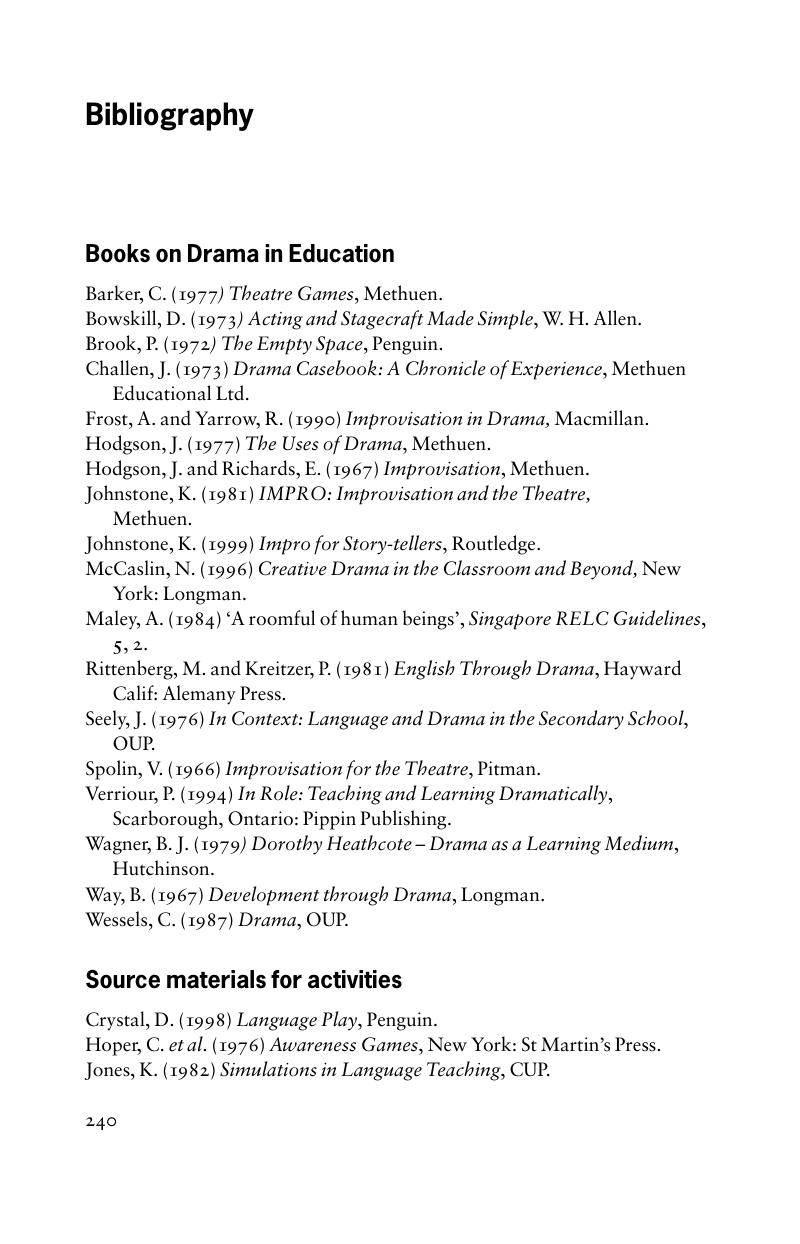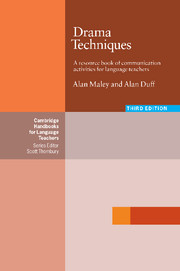Book contents
- Frontmatter
- Contents
- Thanks and acknowledgements
- Introduction
- 1 Getting ready
- 2 Observation
- 3 Working with mime
- 4 Working with the voice
- 5 Working with objects
- 6 Working with visuals
- 7 Working with the imagination
- 8 Working from/into words, phrases, sentences
- 9 Working from/into texts
- 10 Working from/into scenarios and scripts
- 11 Into Performance
- Bibliography
- Index
- References
- Frontmatter
- Contents
- Thanks and acknowledgements
- Introduction
- 1 Getting ready
- 2 Observation
- 3 Working with mime
- 4 Working with the voice
- 5 Working with objects
- 6 Working with visuals
- 7 Working with the imagination
- 8 Working from/into words, phrases, sentences
- 9 Working from/into texts
- 10 Working from/into scenarios and scripts
- 11 Into Performance
- Bibliography
- Index
- References
Summary

- Type
- Chapter
- Information
- Drama TechniquesA Resource Book of Communication Activities for Language Teachers, pp. 240 - 243Publisher: Cambridge University PressPrint publication year: 2005



